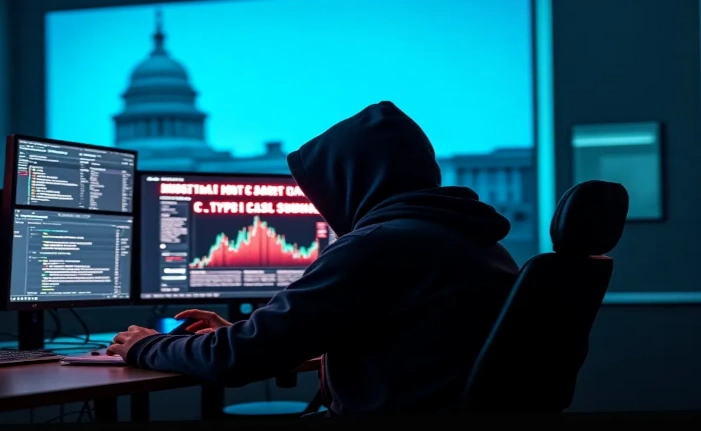Crypto Industry on Edge as US Senate Revives Warrantless Surveillance Law
The cryptocurrency industry is in a state of unease following the US Senate’s passage of Section 702 of the Foreign Intelligence Surveillance Act (FISA). This controversial provision grants the US government broad authority to collect vast amounts of data from Americans’ communications, including phone calls and internet activity, without a warrant.

Section 702 has been a source of contention for years, with privacy advocates raising concerns about its potential for mass surveillance. The crypto industry, which has long championed decentralization and individual control, is particularly worried about the implications of this legislation.
Ethereum’s founder, Vitalik Buterin, has been one of the most vocal critics of Section 702. He expressed concern that the law could be used to target cryptocurrency users and businesses, potentially stifling innovation and hindering the growth of the industry.
The impact of Section 702 on the crypto industry remains unclear. However, the law’s passage has undoubtedly cast a shadow over the future of digital currencies in the US. Industry leaders are now scrambling to assess the potential risks and develop strategies to mitigate them.
One potential consequence is that cryptocurrency users may shift towards privacy-focused coins, such as Monero or Zcash, in an attempt to shield their transactions from government scrutiny. Additionally, crypto companies operating in the US may face increased pressure to comply with surveillance requests, raising concerns about data security and user privacy.
The coming months will likely see a flurry of legal challenges and industry lobbying efforts aimed at curbing the reach of Section 702. The crypto industry is watching developments closely, as the outcome could have a significant impact on its future trajectory.
The crypto industry isn’t taking the revival of Section 702 lying down. Here’s a glimpse into potential countermeasures:
-
Legal Challenges: The Electronic Frontier Foundation (EFF) and other privacy-focused organizations are likely to mount legal challenges against Section 702, arguing that it violates the Fourth Amendment’s protection against unreasonable searches and seizures. These lawsuits could take years to wind their way through the court system, but they could ultimately limit the government’s ability to collect data under Section 702.
-
Lobbying Efforts: Crypto industry groups are expected to ramp up their lobbying efforts in Washington D.C. They will urge lawmakers to amend Section 702 to include stricter safeguards for user data and require warrants for surveillance of cryptocurrency transactions.
-
Flight to Privacy Coins: As mentioned earlier, privacy-focused cryptocurrencies like Monero and Zcash could see a surge in popularity. These coins utilize complex cryptography to make transactions anonymous and untraceable, potentially offering a shield from government surveillance.
-
Exodus of Businesses: If Section 702 is implemented stringently, it could discourage cryptocurrency businesses from operating in the US. This “crypto exodus” could see companies relocate to jurisdictions with more favorable regulations, potentially hindering the growth of the US crypto industry.
The future of the crypto industry in the face of Section 702 remains uncertain. However, one thing is clear: the coming months will be a period of intense legal and political battles. The outcome of these battles will determine the extent to which the US government can surveil the cryptocurrency industry and whether the US remains a hospitable environment for crypto innovation.

